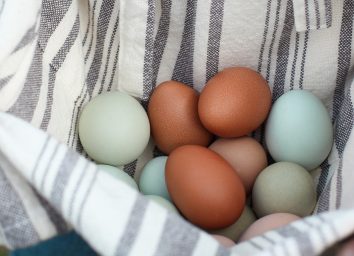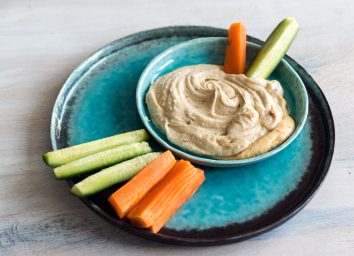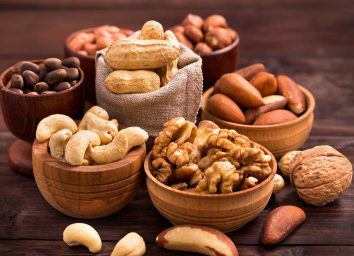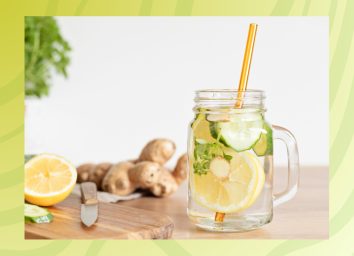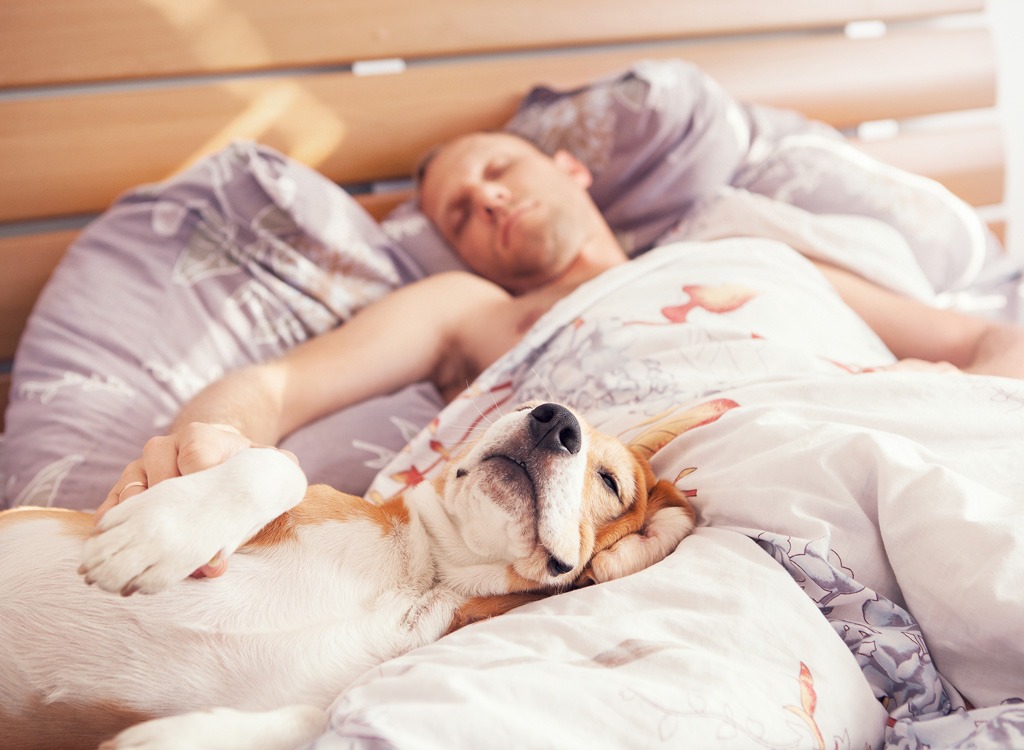
Did that warm cup of milk your mom used to give you really help you fall asleep? Perhaps. But you'll have to keep reading to find out for sure.
There are countless habits and techniques about hitting the hay that many of us take as gospel—but are nothing more than unsubstantiated rumors. Nevertheless, we indulge in these ideas in the hopes that they can help us reap the restorative benefits of finally catching some ZZZ's.
While it may seem like an evolutionary necessity that sleep would come easy, a solid night's rest can often seem as elusive as a sunny day in Seattle. And since many of us are desperate to stop counting sheep, we're here to separate fact from fiction. Find out which common sleep rumors need to be put to bed and then add these 40 Bad Habits That Lead to a Fat Belly to the list, too!
Old People Don't Need As Much Sleep

MYTH
The National Sleep Foundation's recommendation for those over 65 is to get between 7-8 hours of sleep a night, whereas those between the ages of 18-64 have a range of 7-9, so it's still about the same. What is true, however, is that seniors often get less sleep than they need because they often have a harder time falling asleep, which is influenced by anything from medical conditions to what Beth Israel Deaconess Medical Center found to be the deterioration of the neurons which control their circadian rhythm, aka sleep cycle. As a result, elderly people struggle to sleep through the night and get up earlier than they should. So because they may not sleep as much at night (even though they need it), it may appear that older adults don't require the same amount of sleep.
Spicy or Cheesy Foods Will Give You Nightmares
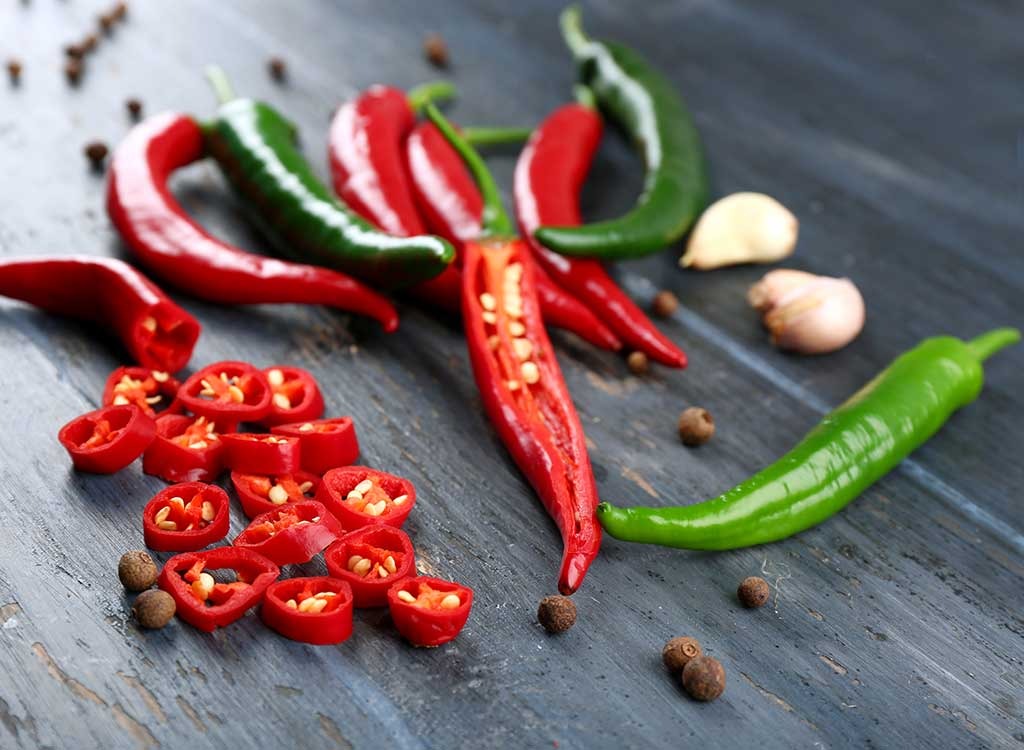
MYTH
While no study has ever legitimized the claim that spicy or cheese-filled foods give you nightmares, what is true is that these high-fat and hot foods do cause restless stomachs. Spicy foods may boost your metabolism, but they also increase your body's core temperature. And because your core temperature naturally decreases as you get ready to sleep, raising it can make it hard to fall or stay asleep. As for cheese, "This high-fat food takes longer to digest," explain The Nutrition Twins, Lyssie Lakatos, RDN, CDN, CFT and Tammy Lakatos Shames, RDN, CDN, CFT, which they say will keep your body stimulated. Fatty foods "often cause bloating and indigestion that interferes with a sound night's rest," they continue, which can result in waking up the next morning without feeling refreshed.
A Warm Glass of Milk Helps You Sleep
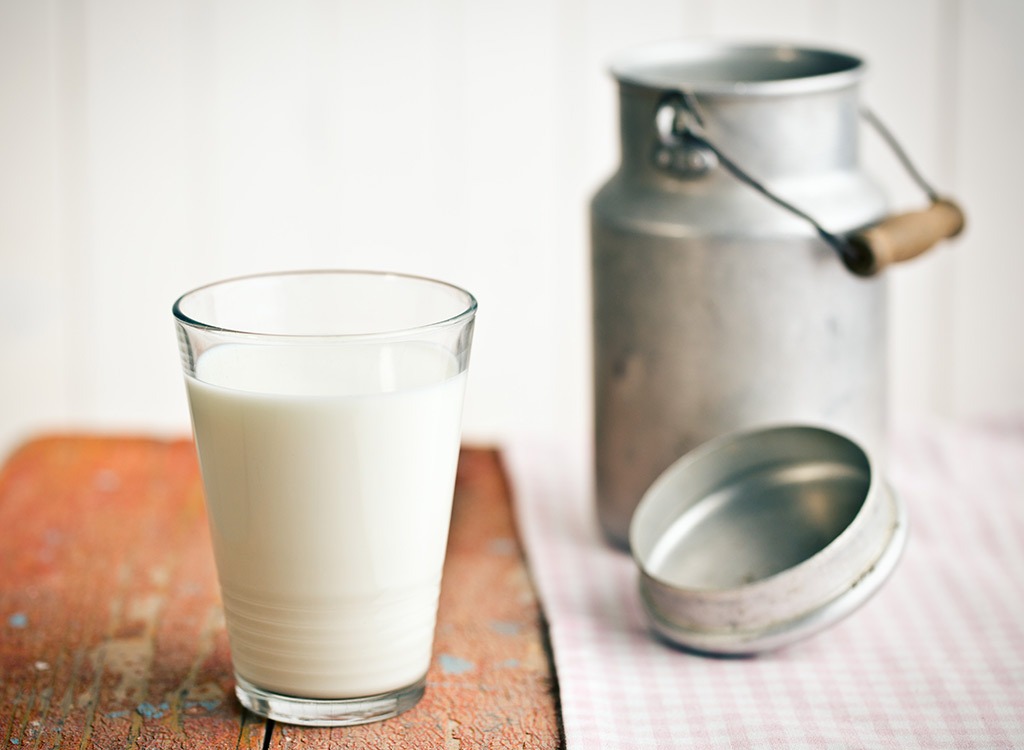
FOR THE REASON YOU THINK—MYTH
The basis of this myth comes from the fact that milk is full of tryptophan—the amino acid that serves as a precursor for the sleep-inducing hormone serotonin. But here's the tricky part: in order for tryptophan to turn into serotonin, it has to journey into your brain. The only way it can do this is by outcompeting other amino acids for a spot. Unfortunately for milk lovers, MIT researchers discovered that high-protein foods (like milk) make it hard for tryptophan to enter the brain; high-carb foods, on the other hand, make it easier (so perhaps combining your glass of milk with a bowl of rice cereal may work). Psychologists speculate the fact it does help people sleep is because the routine of drinking the milk may condition your body to associate this act with falling asleep, which is why having a nightly routine can help you get better sleep.
Laying in Bed is As Restful As Sleeping
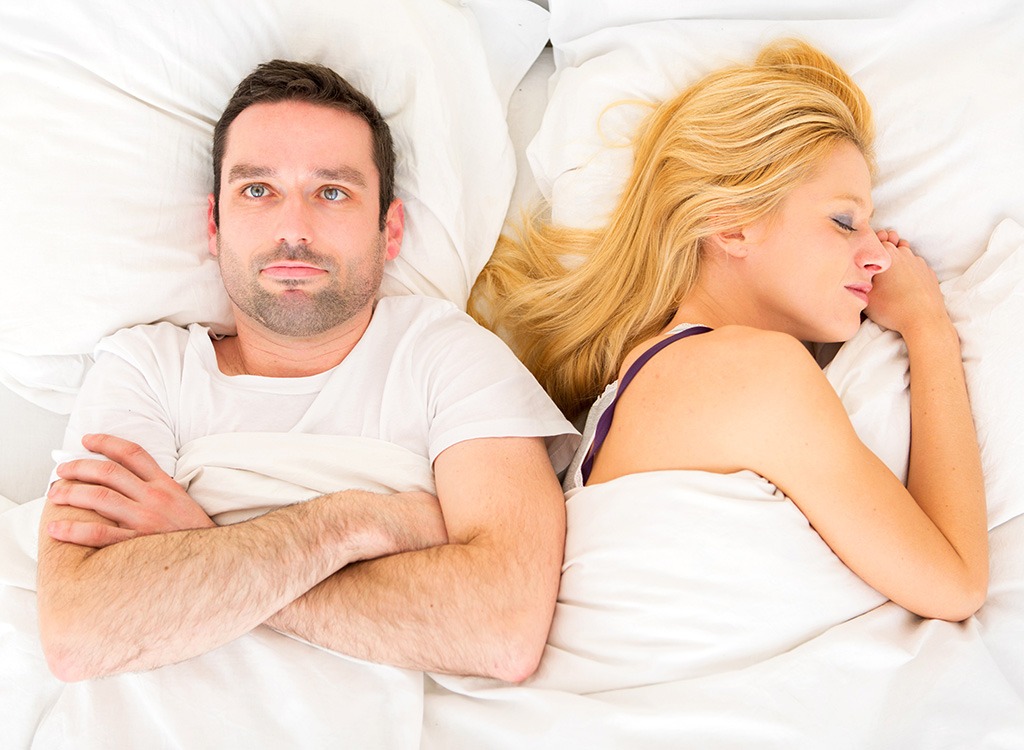
MYTH
It may feel productive, but just laying in bed for hours without actually falling asleep isn't as helpful for your body as getting a restful sleep. Sleeping is a completely different state than "resting"—in particular, while you sleep, your body goes through several neurological and reconstructive processes that can't happen while you're awake. For instance, the National Sleep Foundation explains that sleep allows certain muscle-developing hormones to be released, it helps to balance important hunger hormones, your blood pressure drops (which is important for heart health), your energy levels are restored, and your immune system can reset. Instead of lying around doing nothing, get out of bed and do something that might help you relax, like reading a book under a warm-toned light or snacking on one of these Best Foods To Eat For Sleep.
An Afternoon Coffee Can Make it Harder To Fall Asleep
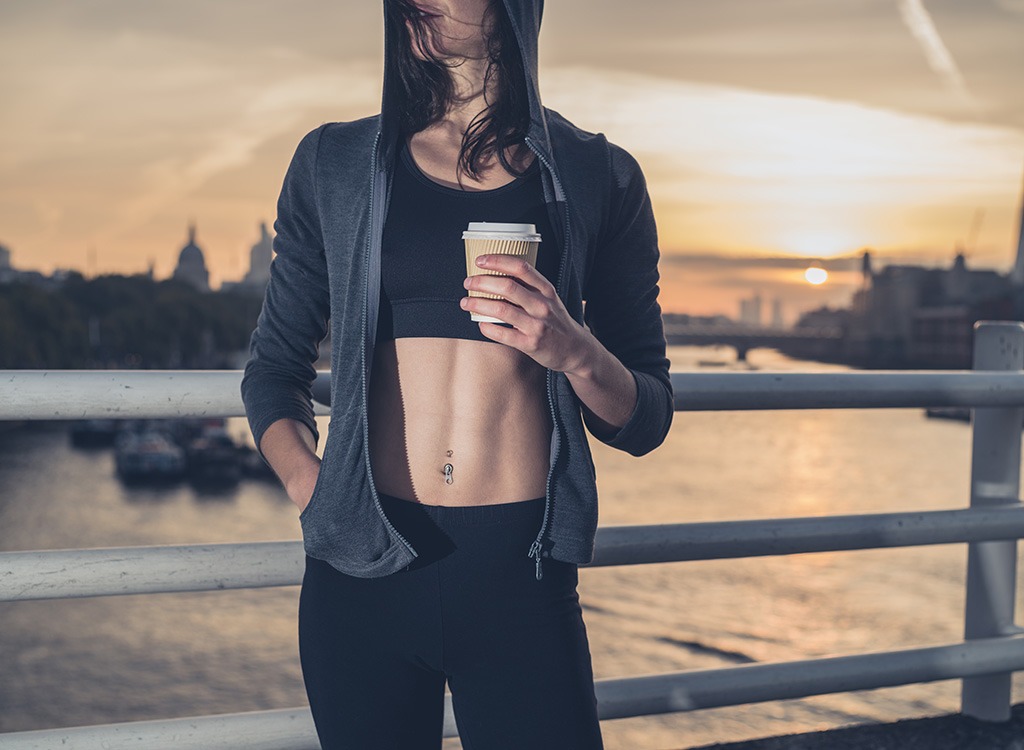
IT DEPENDS
Caffeine has a long half-life, which means half of the originally ingested amount of this central-nervous-system-stimulating compound is still present in your system around 6 hours later. So if you have a grande coffee from Starbucks at 4:00, that's still anywhere from 165-250 mg caffeine—or as much as 4-8 cups of green tea—in your system at 10:00. According to a study published in the Journal of Clinical Sleep Medicine, a typical 400-mg, 16-oz coffee can reduce sleep in those who typically consume no more than 5 caffeinated beverages a day by more than an hour if consumed 6 hours before bed, and thus recommend a cutoff of 5 pm.
However, a 2016 review published in the journal Sleep Medicine found that caffeine won't affect everyone's sleep patterns in the same way, as many people have varying caffeine sensitivity based on tolerance, genetics, weight, and age. Bottom line: while there isn't a recommendation that applies to everyone, start by making a point to curb consumption 6 hours before you're planning to hit the hay and then go from there.
Alcohol Helps You Sleep Better
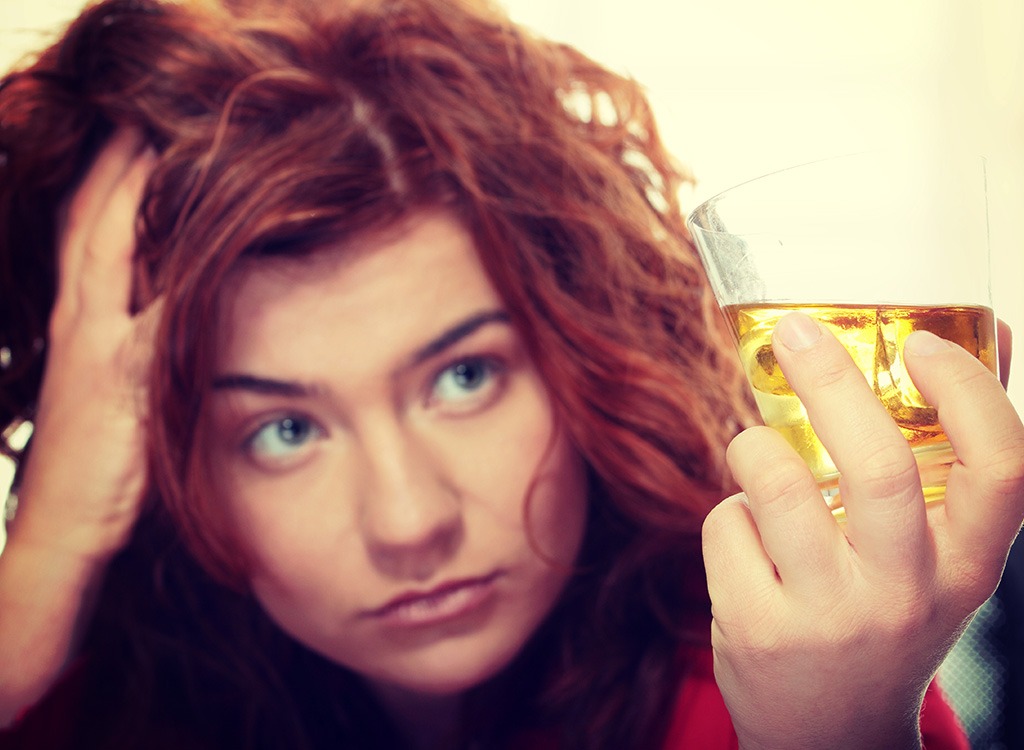
MYTH
That nightcap can certainly help you relax—making it easier to fall asleep more quickly—but it actually prevents your body from getting quality sleep. It does this by preventing you from fully indulging in your REM (Rapid Eye Movement) cycle, which is where truly restful sleep and dreaming occurs. Plus, because your body has to process the alcohol, it can also act as a stimulant, resulting in more shallow sleep later on. According to nutritionist Mitzi Dulan, RD, "Research shows that drinking alcohol before bed can make you more likely to wake up throughout the night and diminishes the quality of sleep." For a little motivation to cut back on the booze, check out these amazing benefits of giving up alcohol!
You Can Catch Up On Sleep Over The Weekend
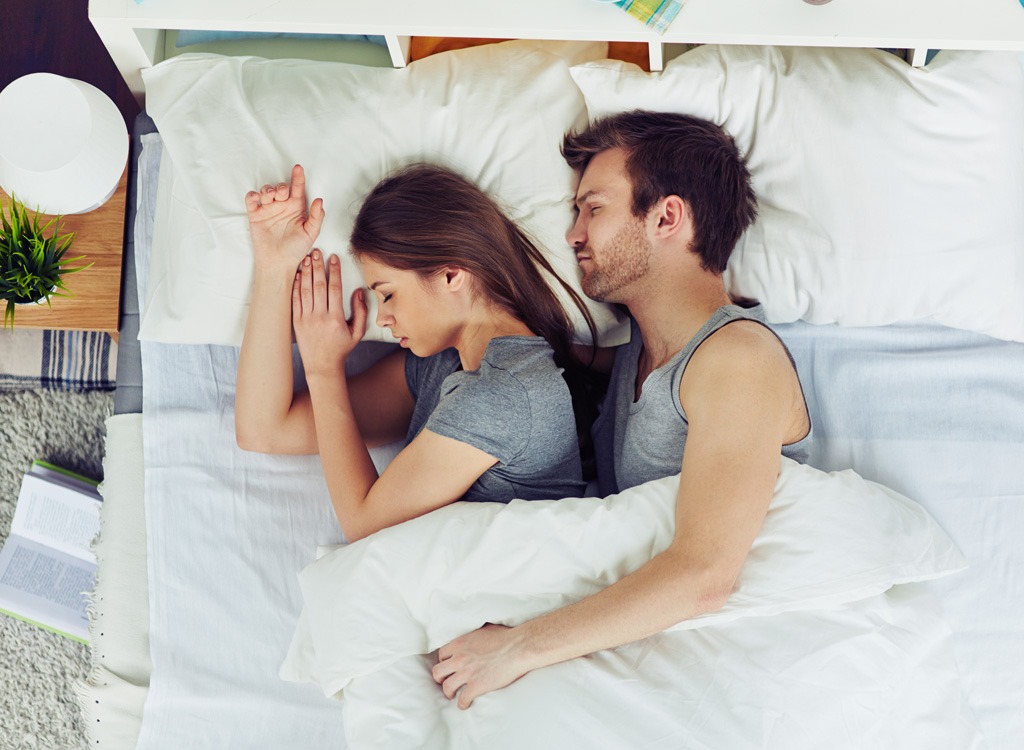
MYTH
Sleep debt is the difference between the hours of sleep you should be getting (anywhere between 7-9 hours) and what you actually get a night. And most of us grow this deficit daily—bad news as sleep deprivation can cause anything from impaired driving to loss of memory in the short term and obesity and heart disease in the long term. However, there is some good news, as you can repay that debt—although it won't happen over the weekend, says a study published in the journal Science Translational Medicine. The study found that while one long night of sleep can restore your performance (measured via reaction time) to normal levels, it may only last 6 hours after waking up. If you do want to overcome the deficit, experts say that a tacking on an extra hour or two a night can help you get back into a natural sleep pattern after a few months. Once you've erased this debt and started a new sleep pattern, you'll start to feel more well rested so you can finally lose 10 pounds.
A Cold Room Makes it Easier to Snooze
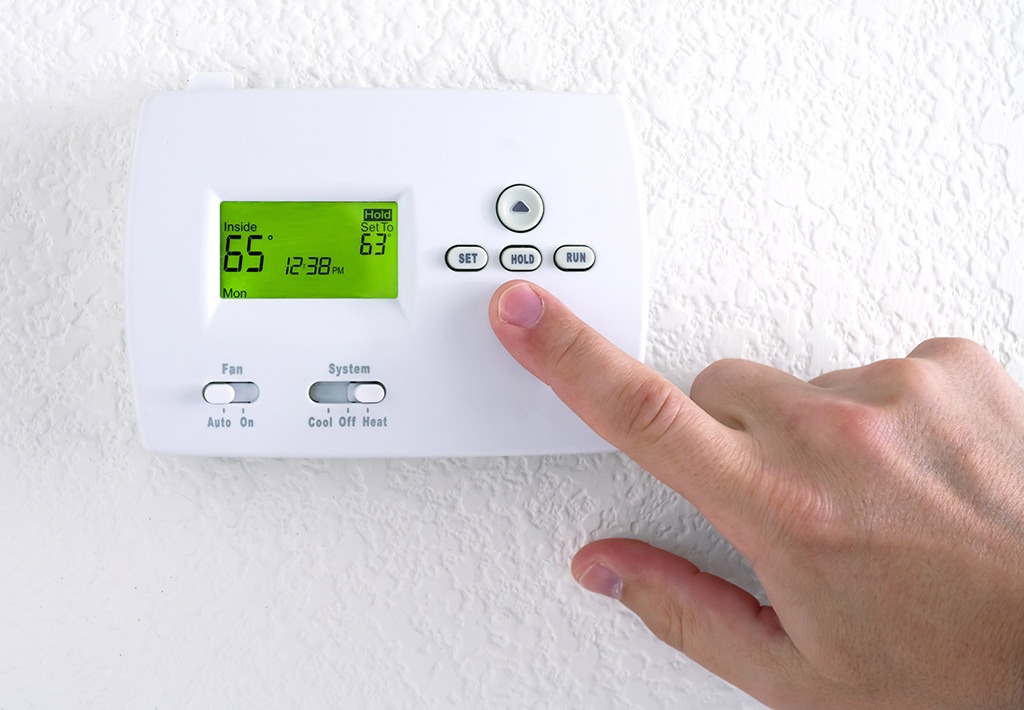
FACT
It may seem like a warm, cozy environment can make you feel comfortable enough to snooze, but that isn't the case. A cool, but not cold environment—anywhere between 60 and 67 degrees Fahrenheit—is the most conducive to good sleep. That's because our body temperature naturally declines after the early afternoon and reaches the lowest point at 5 AM. Keeping the AC on helps your body reach that lower temperature faster, which also encourages deeper sleep and quicker time to sleep ("sleep onset latency"). It won't just help you sleep better, Dutch researchers found that people who slept for a week in 60-degree Fahrenheit rooms lost more weight and increased levels of calorie-burning brown fat compared to those who slept in 75-degree rooms.
Naps Can Interfere with Sleep
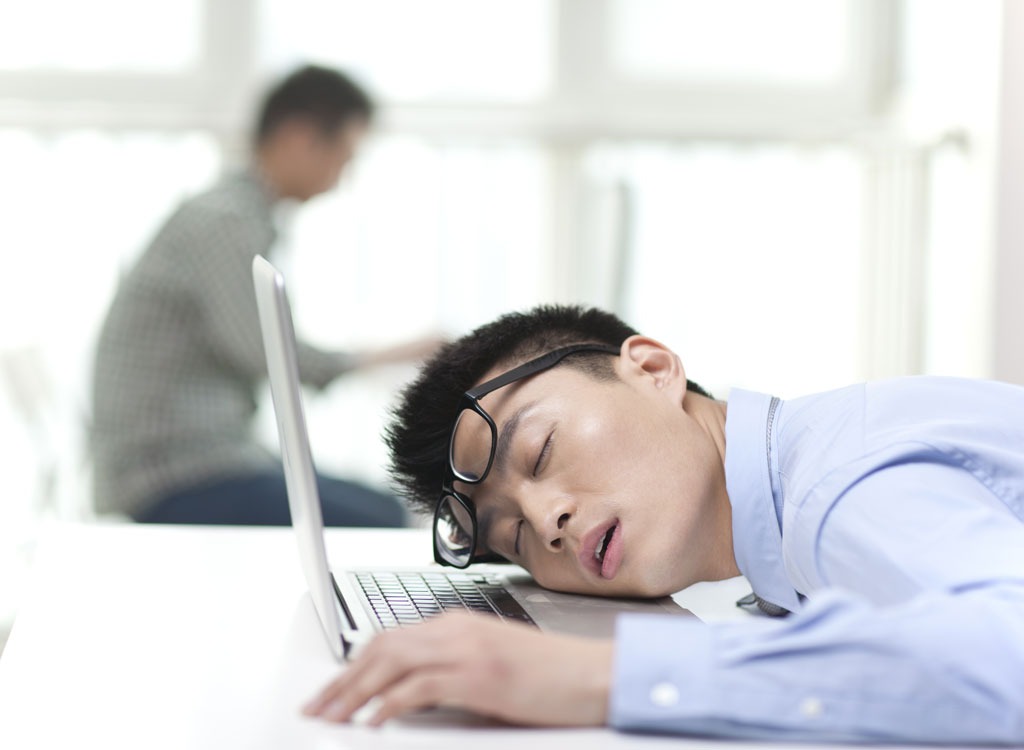
IT DEPENDS
If the time of day and length of your nap is done right, a midday snooze sesh shouldn't interrupt your night's sleep. In fact, it may even be good for you; multiple studies have accumulated evidence that a short, 20-minute, nap can result in greater feelings of alertness, reduce errors, in tasks and make nappers feel more confident in tackling challenges, whereas a full REM cycle 90-minute nap can enhance creativity, improve memory, and make up for lost sleep. According to the National Sleep Foundation, a 20-30 minute nap is the best way to feel energized—any longer (i.e. 90 minutes) can leave you feeling groggy because it requires waking up from a deeper sleep. The myth is accurate if you nap late in the day (after 4 PM) or if you're an insomniac, as this can make it hard to fall asleep at night.
Exercise at Night To Fall Asleep Quicker
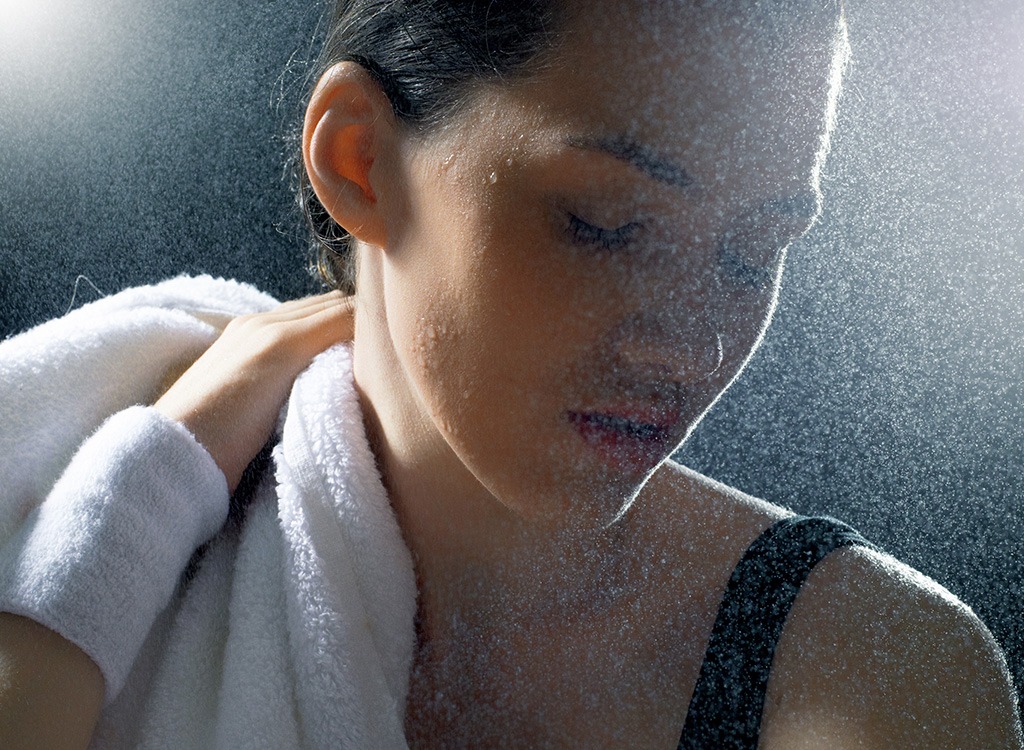
MYTH
It sounds like you'd tire yourself out before bed, but if your sweat session is within two hours of hitting the hay, your adrenaline levels and core body temperature might be too high to allow you to fall asleep quickly. If you only have time to work out after work, ensure you allow yourself about 2 hours to cool off before jumping into bed or 3-4 hours if you have trouble sleeping.
Watching TV Can Interfere with Sleep
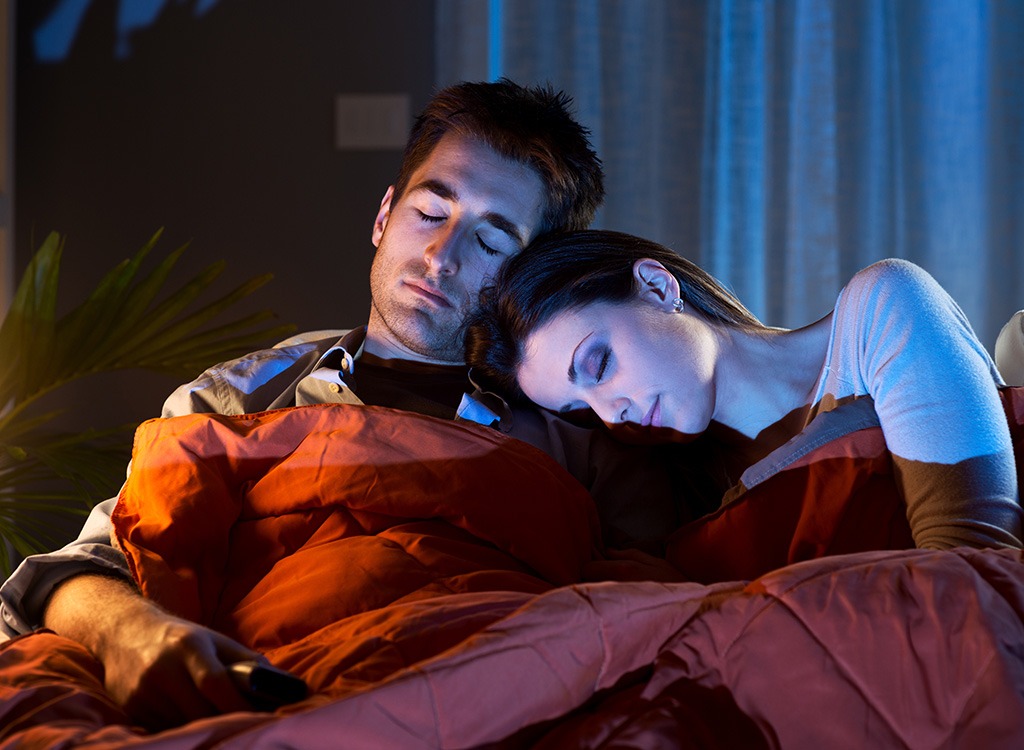
FACT
Sure, it might make you think you're relaxing, but in reality, that nightly Netflix isn't doing much good. The blue light emitted from your TV, computer, and phone (and even the wrong light bulb) can trick your brain into thinking it's time to be awake by messing with your circadian rhythm. You see, blue light inhibits production of the sleep-rhythm-regulating hormone melatonin, which means your body won't be getting the alerts that it's time to rest your head on a pillow. Try to power down your electronic devices at least an hour before bed.
Get As Much Sleep As You Can
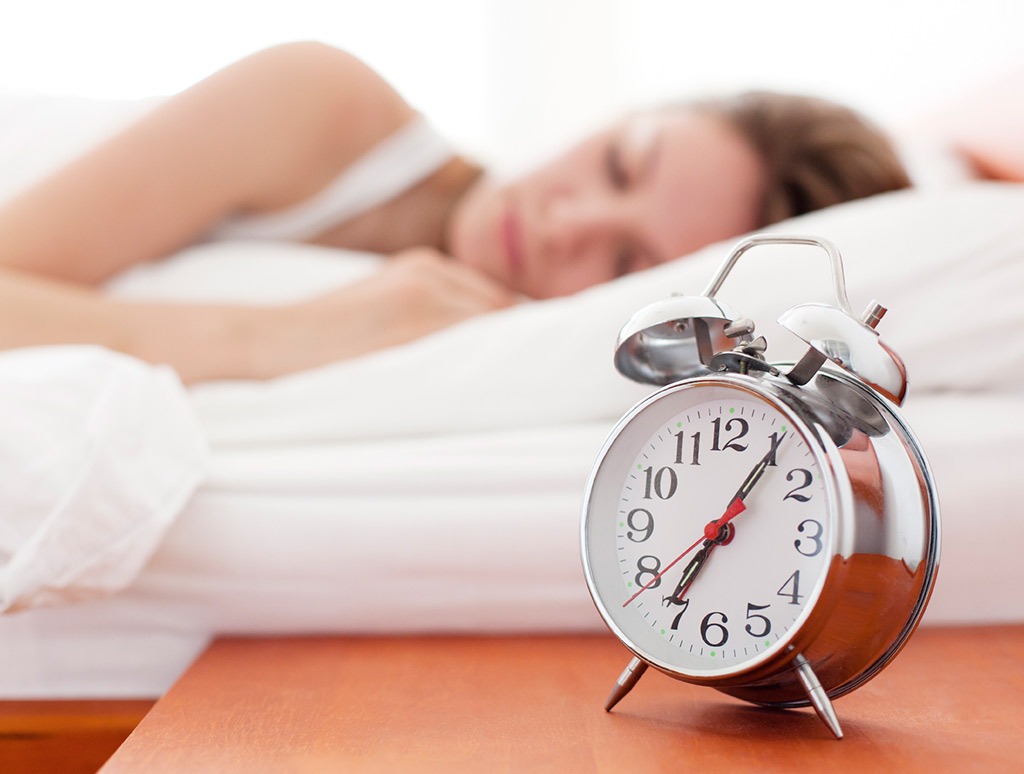
MYTH
It sounds crazy to think there are people out there who get too much sleep, but believe it or not, that's not a good thing. Yes, too much of good thing is still bad. Sleep studies have found that oversleeping—that's more than 10 hours a day—is linked to memory impairments, decreased cognitive function, and increased risk of obesity, diabetes, Alzheimer's, depression, and chronic inflammation (because your body increases production of inflammatory factors known as CRP while you sleep).
Everyone Needs 8 Hours
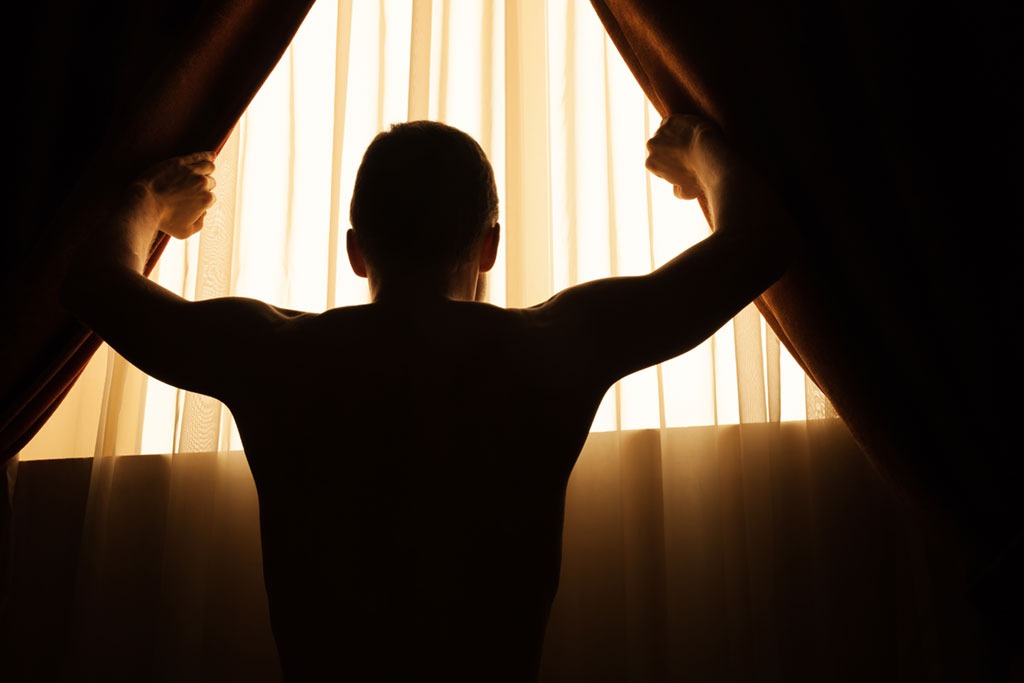
MYTH
We know, we know. We're always recommending you get those 8 hours of expert-recommended sleep, but it turns out that what works for you might not work for the next person. Some people can function on 6, while others need 9—those 8 hours are just an average guideline. One way to tell if your 7 hours is enough is to see if you fall asleep as soon as you hit the hay. If that's the case, you're likely not getting enough sleep, as it should take about 15 minutes for generally well-rested people to drift off. Although your magic sleep number may differ from your friend's, what is the same is that you should make sleeping a priority. To do so, replicate these 7 Habits of High-Rested People.
It's Fine if You Sleep With Pets
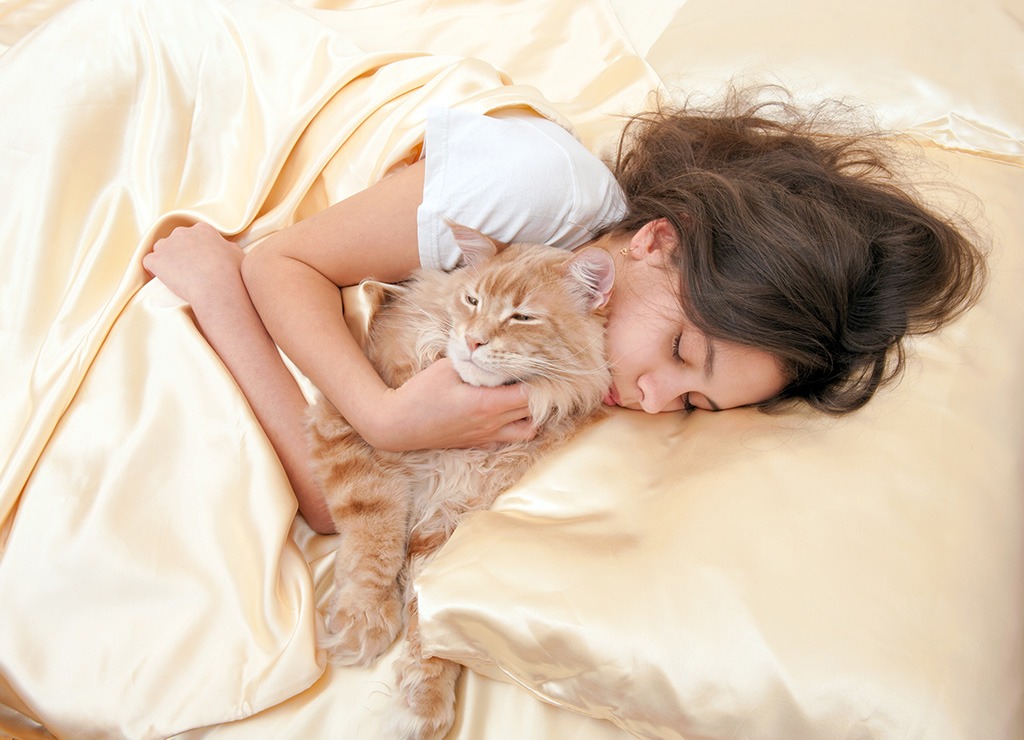
IT DEPENDS
Sleeping with your furry friend can be both a help and a hindrance. It all depends on you! In 2016, the Mayo Clinic's Center for Sleep Medicine found that 41 percent of participants reported that sleeping with their pets actually helped them sleep better because it gave them a sense of security. On the other hand, 20 percent of pet owners admitted that they found their pets to be disruptive.
Eating Late At Night Interrupts Sleep
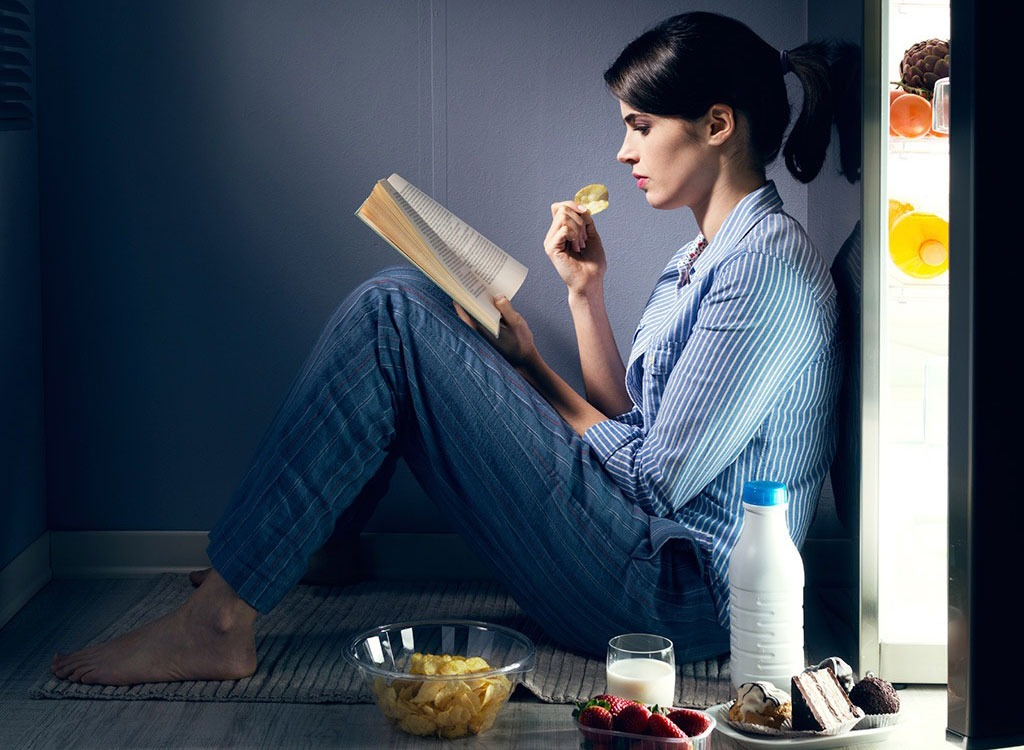
IT DEPENDS
Munching on a snack before bed isn't necessarily a diet no-no. In fact, going to bed with a rumbling tummy may hurt your slim-down efforts by preventing you from falling asleep or waking you up mid-slumber. On the other hand, if you do decide to eat something—and it's the wrong thing, like a high-sugar or fatty meal that can either spike and crash your blood sugar and wake you up with a hungry tummy or keep your body up working to digest it—you can also disrupt your sleep. Contrarily, eating one of the best foods before bed may help you drift into dreamland.
Exercising Can Improve Sleep

IN CERTAIN CIRCUMSTANCES—FACT
Exercising will definitely help you catch some ZZZ's, but if you don't break a sweat regularly, don't expect to reap the benefits. A 2013 study by Northwestern University researchers found that engaging in aerobic exercise (cardio) during the day can improve your sleep—only after doing so regularly for four months. The study, published in the Journal of Clinical Sleep Medicine, found that those with sleeping problems who completed a single day of cardio did not improve their sleep that same night. To help you get out there, try these 18 Ways to Get Motivated for Morning Workouts—you'll be sleeping better and losing weight in the process!
Foods with Magnesium Can Improve Sleep
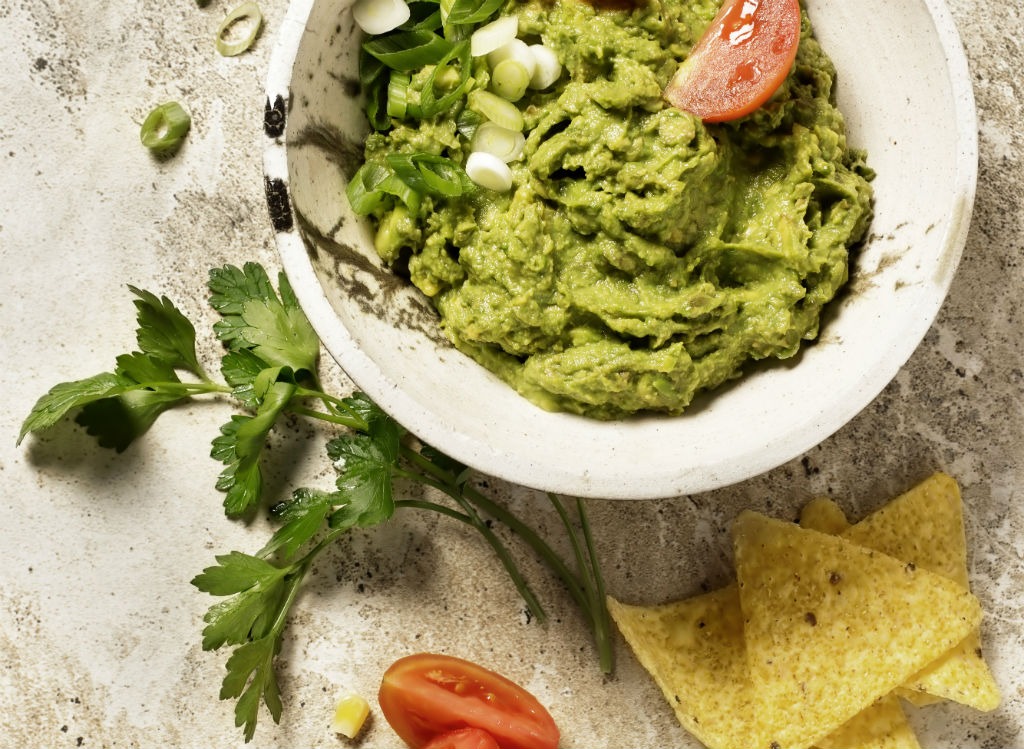
FACT
A recent study published in the Journal of Research and Medical Sciences found that adults with insomnia who ingested magnesium supplements before bed improved their quality of sleep by extending the time they spent sleeping and making it easier to wake up in the morning. Luckily, you don't have to invest in a tablet to reap the benefits. There are plenty of foods teeming with this muscle-relaxing mineral, such as—you guessed it—avocados, bananas, spinach, and pumpkin seeds. Guacamole isn't the only way you can nosh on this weight loss weapon, there are countless avocado recipes for weight loss.
